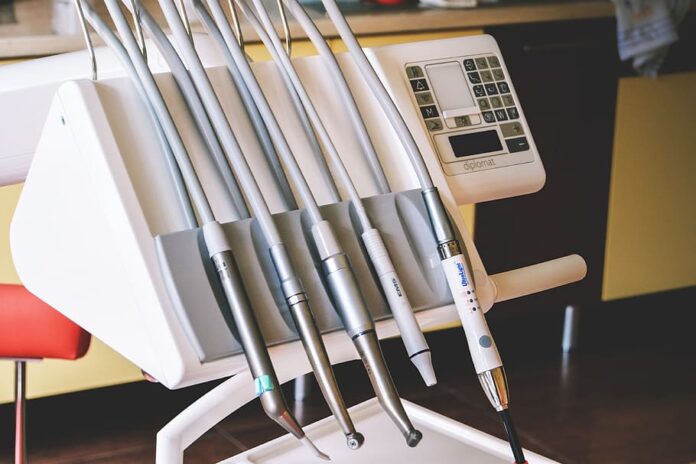Most people hate visiting the dentist’s office because they’re scared of being hurt. But, the truth is, most dental procedures are completely painless for the patients, not because there’s nothing painful going on, but because the dentists administer local anaesthesia to numb your pain.
On that note, have you ever wondered what do dentists use to make your mouth go numb? Well, if you did – here’s your answer.
What Do Dentists Use?

There are two common types of numbing injections dentists use – block and infiltration injections.
Block injections are injections that numb the entire region of your mouth, like the entire jaw, for instance. This is a local anaesthetic that deactivates the nerves and helps people push through the major dental procedures like root canals, fillings or tooth extractions.
Infiltration injections are localized numbing injections, where you’ll only feel the numbness in the small area surrounding the injection area. Infiltration injections are commonly used for small, almost painless dental procedures.
To prep you for these, dentists will first dab your mouth with cotton to dry it out, and in some instances, they will first numb the injection spot with a topical anaesthetic in the form of a gel so that you don’t even feel the injection. The only thing that you might feel is the medicine moving into your tissues. Other than that, it’ll be a completely sensation-free experience.
These are the local anaesthetics that dentists use and are the ones that numb your mouth. You could also receive general anaesthesia where you would be completely unconscious, but this practice is rarely applied for common dental procedures.
Which Drugs Are Most Commonly Used?

There are several anaesthetics that are commonly used in dental offices across the world, but the two most popular ones are Lidocaine and Articaine. These two can also be found under different names, so if you notice your dentist administering you with Xylocaine or Septanest, know that what you’re actually getting are Lidocaine and Articaine. Aside from these two, dentists will administer Bupivacaine, Mepivacaine and Prilocaine Plain, too.
Are There Side Effects To Mouth-Numbing Anaesthetics?

Yes, of course, there are. According to https://www.mynazarethdentist.com, these anaesthetics rarely ever cause any negative side effects when administered properly, but there are some minor, rare side effects that could happen. Here they are.
• A hematoma around the injection spot can occur if the dentist hits the blood vessel.
• A patient might experience increased heart rate due to vasoconstrictors found in anaesthetics.
• Non-localized numbness, or numbness in the parts of the face or mouth that wasn’t targeted by the dentist.
• Nerve injury can occur if the dentist strikes a nerve during the administration of the anaesthetic.
How Long Will I Be Numb?

That depends on the anaesthetic that was used, but the numbness rarely ever exceeds 8 to 10 hours. In general, the area around the tooth and the tooth itself will be numb for about an hour or two, and the surrounding area like cheeks and lips will stay numb for about 4 hours on average.
There you go. Now you know the basics behind numbing the pain in the dentists’ office.







